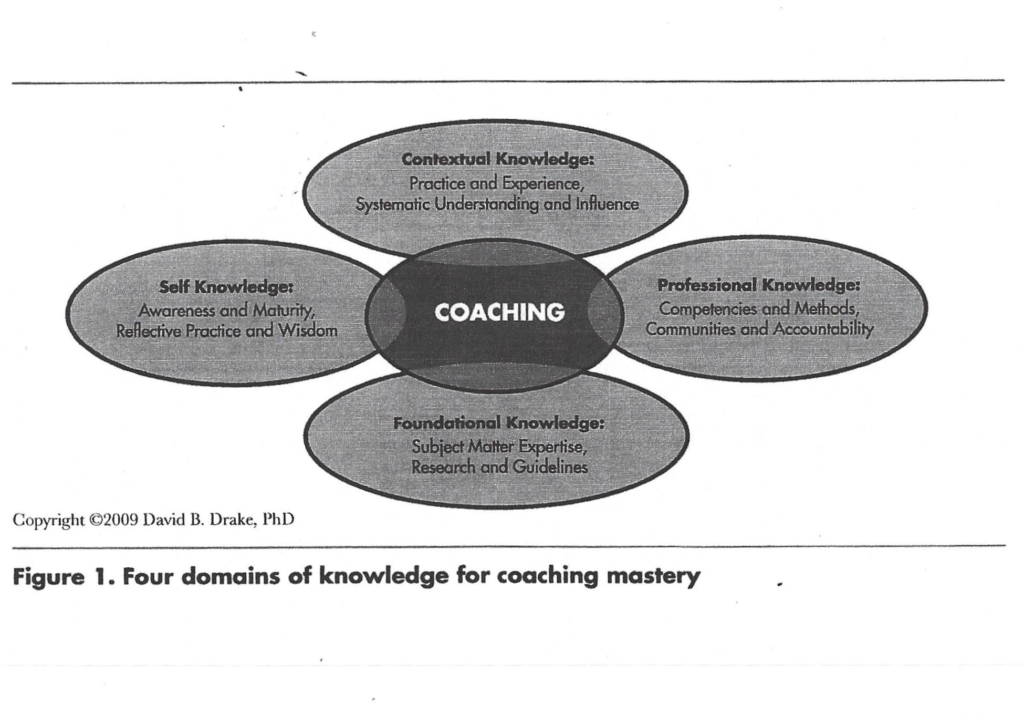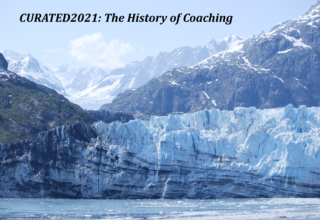
I see these distinctions as important in providing language for the major shift that is under way as the number of coaches plateaus and the number of people who use coaching as an integral part of their work and life continues to grow. I see it already in my clients as they grow more sophisticated in how they use external coaches, increase their commitments to develop internal coaching capabilities, and expand the reach of coaching principles into their key conversations and processes. Part of my work with themes to continually clarify the grammar in our projects so that we can accelerate the effectiveness of coaches and the adoption of a coaching approach in the way their business gets done. This is particularly useful in working with organizations who say, “We’ve done coaching, now what?” For them, I introduce what I’ve come to call a coaching “value chain”. in bringing coaching approaches to bear on every key point in their key human capital and operational processes in order to achieve the desired changes and results.
You can also see these distinctions in a number of the articles in this issue as when John Whitmore (Drake, 2009a) reflected on the fact that as time has gone on, they have focused in the European coaching scene on playing down the word ‘coaching’ and focusing more on the attitudes and behaviors that people needed to develop. I also appreciated Brock’s (2009a) vision that coaching becomes an open, fluid social movement that is spread virally through human relationships and interactions, is woven into the fabric of life, and becomes the preferred communication process and style for human interaction. So, how can the coaching community and all those who have taken onboard coaching approaches contribute to the next phase of development of this work?
WHAT IS OURS TO DO?
In my research on the philosophy and practice of coaching I identified four eras in the development of psychotherapy (see Drake, 2008) and mapped them to coaches/coaching as well as proposed a fifth era that was emerging as seen in coaching (Drake, 2007, 2009b). In this work, I also described four domains of knowledge I see as essential in developing coaching mastery, whether in providing coaching services or taking a coaching approach, and in developing a coaching profession. My work was informed as well by Wenger’s work (see Wenger, McDermott, & Snyder, 2002) on communities of practice in thinking about what it means to have collective wisdom and individual excellence. This analysis is relevant here in providing a broader context for the development of coaches and the articulation of coaching’s history and the implications for its future. For this article, I have brought together these two pieces of work together to look at how coaching might learn from a sister industry in defining its own future.
The four types of knowledge necessary for a solid future for coaches and for coaching are as follows:
Download Article 1K Club
















